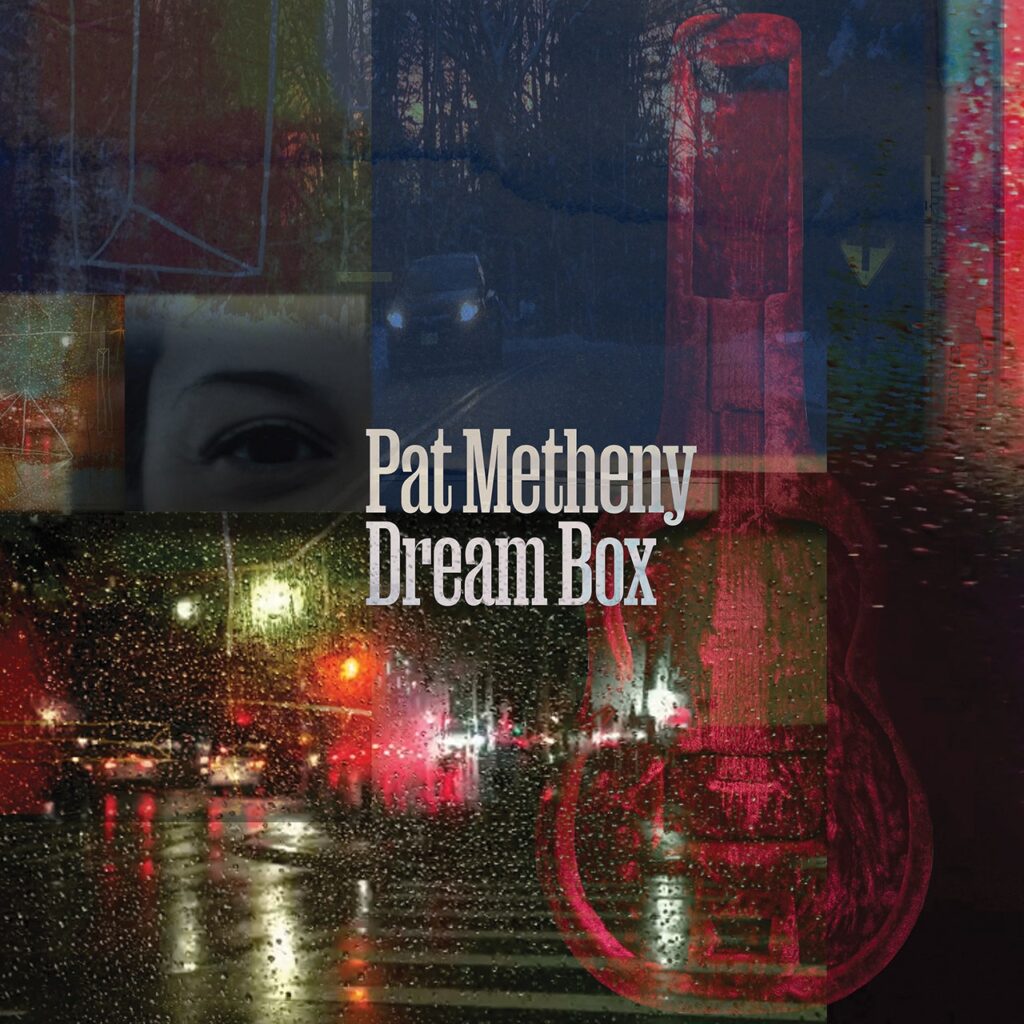First popularized by Chicago jazz singer Judy Roberts and recently resurrected on a compilation of obscure yacht-rock gems, Russ Long’s 1982 composition “Never Was Love” is a fascinating document of its time: as catchy and evocative as anything on Silk Degrees but played with a sophistication that suggests a smoky after-hours club as much as a crowded disco. Hearing these kinds of lost classics tends to invite a litany of questions: What happened to the mysterious figure behind its heartbroken words? What kept its songwriter from catching on beyond their regional scene?
Or if you’re Pat Metheny, you might ask: What would this sound like stripped down to just two sad, solitary electric guitars? The 68-year-old virtuoso’s rendition is a highlight on Dream Box, an understated set of new solo recordings that he compiled during downtime on tour buses and in hotel rooms around the world. On the road last year, Metheny sorted through a folder on his computer where he had stored these casual, off-hours experiments: cover songs, jazz standards, and new melodies captured as soon as they occurred to him. In the liner notes, Metheny describes the songs as “moments in time” more than proper compositions. “I have almost no memory of having recorded most of them,” he admits. “They just kind of showed up.”
For an artist whose name has become synonymous with sleek, smooth hyper-technicality—your guitar teacher’s favorite guitarist—Metheny remains underrated for his unending drive to experiment and challenge himself. While his feathery style on the fretboard remains as distinctive as his robust and permanently windswept mane, no two of his records involve quite the same approach, whether that means finding new collaborators, new instrumentation, or on releases like Dream Box, new ways to channel his creative process.
Like 1994’s Thurston Moore-approved noise excursion Zero Tolerance for Silence and 2003’s mournful, acoustic set One Quiet Night, Dream Box is the type of album Metheny makes when he doesn’t realize he’s making an album. Accordingly it drifts, retreats, and grounds itself mostly with negative space. Many of the songs feature just one guitar part, which he then accentuates with an overdubbed, improvised accompaniment. Favoring minor keys and loose sketches of melody, Metheny embraces the scattered, jetlagged genesis. This is music made for late nights and bleary eyes, wistful and half-awake.
The new compositions are highlights, tracing their central motifs to unexpected destinations. While some of Metheny’s best original work this century has spoken to his ambition as a composer (2005’s The Way Up), his aim here is for simple but immersive mood-setting. After an introduction of electric guitar against chiming, slightly dissonant acoustic chords, the gorgeous “Ole & Gard” swiftly finds its feet and cycles through various settings to return to a recurring bluesy refrain. “From the Mountains” is more formless but just as memorable, navigating its eight-minute runtime with a dreamy sense of focus: The effect is like watching the sun rise over an unfamiliar city, new contours filling in as the light starts to spread.
The cover choices are equally distinctive, from his misty take on the bossa-nova standard “Morning of the Carnival” to the vinyl-only rendition of Miles Davis and Bill Evans’ classic “Blue in Green.” And then there’s “Never Was Love,” a moody, propulsive interpretation that best encapsulates the album’s inspiration. Metheny has covered the song once before, contributing it to a compilation released after Russ Long’s death in 2006. The two share a home state of Missouri and played in a group together early in Metheny’s career, before their paths verged dramatically. One late night on the road, he might have been thinking about the strange journey he has taken, from a young prodigy accompanying Joni Mitchell to the closest thing jazz guitar has to an arena rock star all the way up to the present day, when he got to his hotel room, put on his headphones, listened back to some demos, and heard the beginnings of a story he had yet to tell.
All products featured on Pitchfork are independently selected by our editors. However, when you buy something through our retail links, we may earn an affiliate commission.

